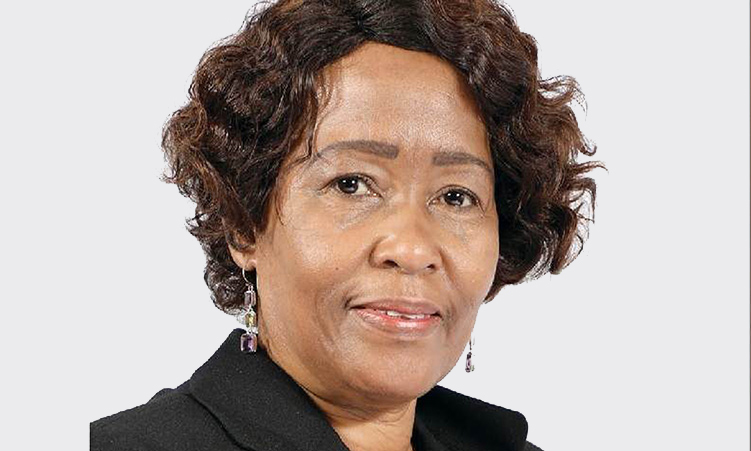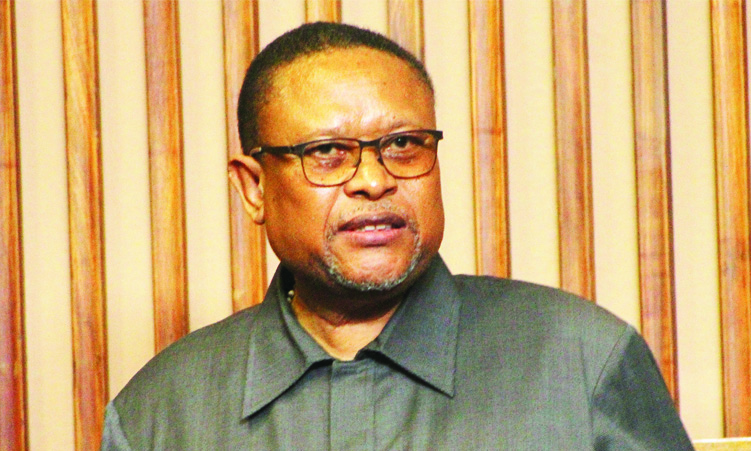JOHANNESBURG – AIDS and food shortages in southern Africa are responsible for the world’s worst humanitarian crisis, UN special envoy James Morris said yesterday at the end of a four-nation tour of the region.
“What is happening in southern Africa absolutely represents the most serious humanitarian crisis in the world today,” said Morris, who returned from fact-finding visits to Malawi, Mozambique, Swaziland and Namibia. “You have a serious food situation and an extraordinary unprecedented health situation driven by HIV and AIDS,” he said.Morris said that adverse weather and an HIV-AIDS prevalence rate of 24 per cent on average have had “a overwhelming impact on governments and civil society’s institutional capacity and development” in the region.He said the crisis surpassed that of Darfur in Sudan, where civil war has forced more than a million people from their homes, putting half of them in refugee camps.”But what we have in southern Africa represents a serious predicament for many, many more people than the issue in Darfur,” said the envoy, who visited Sudan a few weeks ago.The UN envoy, who is also executive director of the World Food Programme, was due to travel to Zimbabwe as part of the tour but the government said that no one was available to meet with him.Aid agencies estimate that around five million Zimbabweans will need food aid this year, but the Zimbabwe government has said it will not appeal for assistance because it expects a bumper harvest.”This is, I must say, a remarkable turnaround, maybe one of the most remarkable turnarounds in history if they are able to go from this huge food deficit situation to a situation where the will have more than enough food to feed their own population,” Morris said.The UN envoy painted a bleak picture of the devastation caused by AIDS in southern Africa and said he has urged governments to take emergency measures to tackle the pandemic.The kingdom of Swaziland has the highest rate of HIV-AIDS infection, hovering at 38 per cent.In Malawi, some 937 000 children have been orphaned by the disease.In Mozambique, 500 new HIV cases were being recorded every day, Morris said, of which 50 per cent were in women younger than 25.Morris also visited Namibia for the first time, saying that AIDS has now become the leading cause of death in the country of 1,8 million people.”Nearly a quarter of a million people have been infected with HIV, some 22 per cent of them pregnant women” in Namibia, he said.”The message that we try to bring is that there is an enormous sense of urgency to get on with providing help and support and service for people who are so desperately in need of help,” said Morris.”Most of the governments have good plans, most of the leadership do care in getting on with it but the capacity to deliver the services is modest at best,” he said.More international aid was on the horizon, Morris said, “but the challenge will be how to make that additional financial resource benefit people and benefit people quickly.”He said the Global Fund, the World Bank and the US administration were all ready to provide financial assistance to governments in the region as they battle the pandemic.- Nampa-AFP”You have a serious food situation and an extraordinary unprecedented health situation driven by HIV and AIDS,” he said.Morris said that adverse weather and an HIV-AIDS prevalence rate of 24 per cent on average have had “a overwhelming impact on governments and civil society’s institutional capacity and development” in the region.He said the crisis surpassed that of Darfur in Sudan, where civil war has forced more than a million people from their homes, putting half of them in refugee camps.”But what we have in southern Africa represents a serious predicament for many, many more people than the issue in Darfur,” said the envoy, who visited Sudan a few weeks ago.The UN envoy, who is also executive director of the World Food Programme, was due to travel to Zimbabwe as part of the tour but the government said that no one was available to meet with him.Aid agencies estimate that around five million Zimbabweans will need food aid this year, but the Zimbabwe government has said it will not appeal for assistance because it expects a bumper harvest.”This is, I must say, a remarkable turnaround, maybe one of the most remarkable turnarounds in history if they are able to go from this huge food deficit situation to a situation where the will have more than enough food to feed their own population,” Morris said.The UN envoy painted a bleak picture of the devastation caused by AIDS in southern Africa and said he has urged governments to take emergency measures to tackle the pandemic.The kingdom of Swaziland has the highest rate of HIV-AIDS infection, hovering at 38 per cent.In Malawi, some 937 000 children have been orphaned by the disease.In Mozambique, 500 new HIV cases were being recorded every day, Morris said, of which 50 per cent were in women younger than 25.Morris also visited Namibia for the first time, saying that AIDS has now become the leading cause of death in the country of 1,8 million people.”Nearly a quarter of a million people have been infected with HIV, some 22 per cent of them pregnant women” in Namibia, he said.”The message that we try to bring is that there is an enormous sense of urgency to get on with providing help and support and service for people who are so desperately in need of help,” said Morris.”Most of the governments have good plans, most of the leadership do care in getting on with it but the capacity to deliver the services is modest at best,” he said.More international aid was on the horizon, Morris said, “but the challenge will be how to make that additional financial resource benefit people and benefit people quickly.”He said the Global Fund, the World Bank and the US administration were all ready to provide financial assistance to governments in the region as they battle the pandemic.- Nampa-AFP
Stay informed with The Namibian – your source for credible journalism. Get in-depth reporting and opinions for
only N$85 a month. Invest in journalism, invest in democracy –
Subscribe Now!










